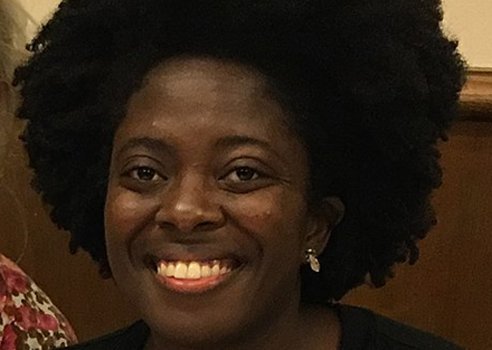Reading time: Just over 1 minute
I like to share interesting pieces of figurative language I encounter in my reading. I write today about a series of metaphors from novelist Yaa Gyasi…
Although she was born only in 1989, Yaa Gyasi is a Ghanaian-American novelist who already has an armful of awards. Her debut novel, Homegoing, which she wrote at the age of 26, won her the National Book Critics Circle’s award for best first book, the PEN/Hemingway Award for a first book of fiction, the National Book Foundation’s “5 under 35” honors and the American Book Award.
Yaa Gyasi’s next book, Transcendent Kingdom, which was published in 2020, is a portrait of a family of Ghanaian immigrants affected by depression, addiction and grief. It also contains some superb figurative language. Here are my favourite examples:
- I watched the sieve catch the hardened, charred bits of food left over from the day’s cooking. I watched my mother’s tongue peek out from the corner of her lip, a snail slipping out of its shell.
- The day of this particular game had been hot and muggy, one of those quintessential Alabama summer days when the heat feels like a physical presence, a weight.
- This was in stark contrast to my time on the East Coast, where beauty was hard won, where every brilliant day had to be savored, the memories of them stored like acorns buried underground by industrious squirrels, just to get you through those punishing winters.
- Mockery was her preferred way of displaying affection, a sign of her old self surfacing. I felt like I was finding a single tooth of a titanosaur fossil, excited by overwhelmed by the bigger bones that were yet buried.
- He looked too young to be a doctor, and he had that thick, slow drawl some southerners have, as though each word has to wade through molasses before it can leave the mouth.
- I knew without asking that my mother expected us to keep Nana’s addiction close to the chest, and the secret ate away at me like moths in cloth.
[Photo credit: Bank Square Books. Cropped. Licensed under the Creative Commons Attribution 2.0 Generic license.]


